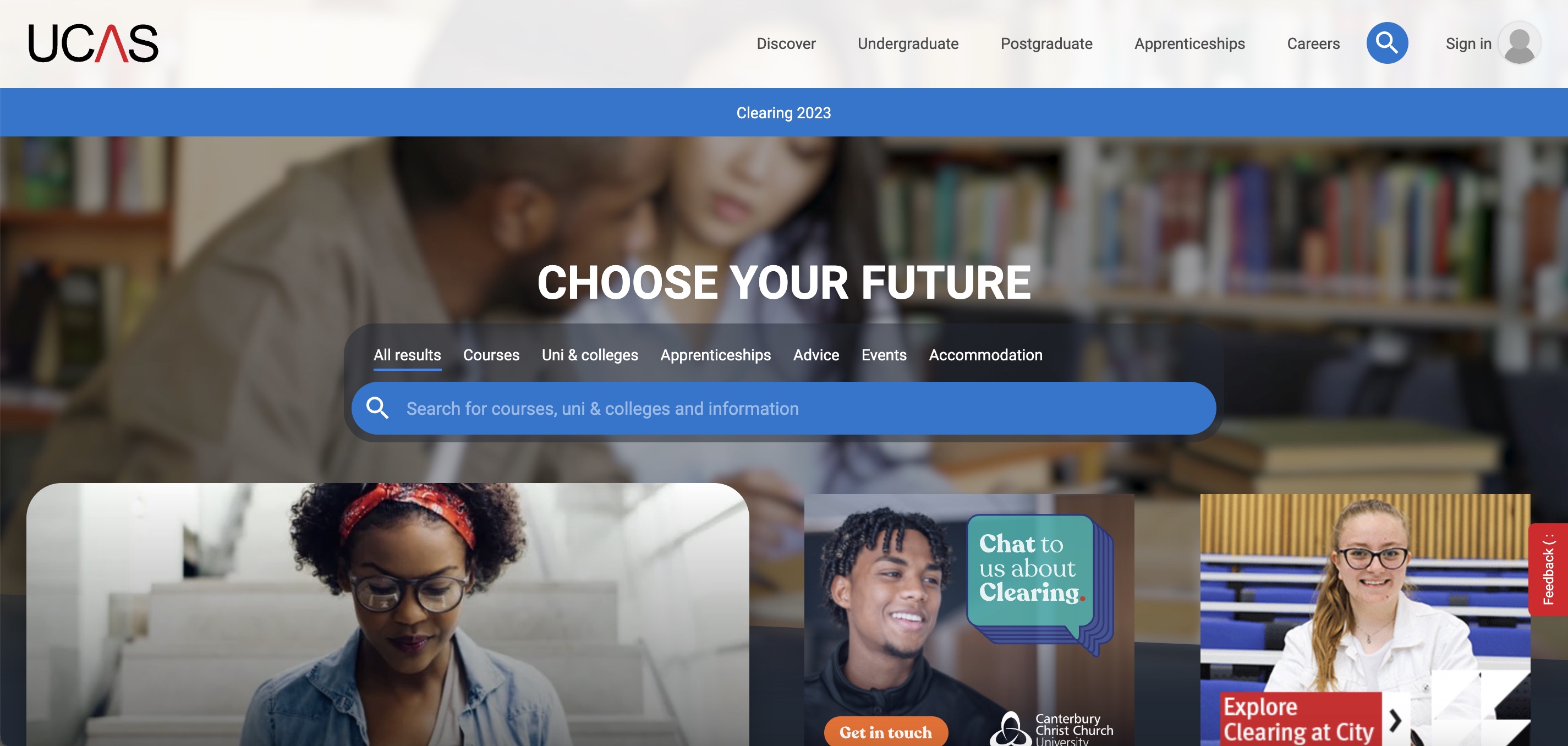When high school students in Hong Kong complete their secondary education and plan to apply to local universities, they will undoubtedly use the JUPAS system. But what if they want to pursue higher education in the UK? That's when they must familiarize themselves with UCAS! So, what exactly is UCAS? Cyclopes presents a cheat sheet for students to understand the UCAS application process and registration fees, helping them prepare for their studies in the UK in advance!
Understanding UCAS
When it comes to pursuing a university education in the UK, you will encounter UCAS, which stands for Universities and Colleges Admission Service. It is the UK's national system for university and college admissions, similar in concept to Hong Kong's JUPAS. UCAS is not only open to local students in the UK but also available for prospective international students planning to study in the UK. Unlike JUPAS, UCAS allows each student to make up to five course choices, which means students cannot employ a blanket strategy but must have clear targets in mind, choosing preferred universities and courses where they have a good chance of being accepted based on their grades.

Source: UCAS
UCAS Application Cheat Sheet
Before officially starting the UCAS application for universities, students should gather information and select five target courses based on their interests, aspirations, academic performance, and future career prospects after graduation. Before UCAS opens for applications, students can explore the platform to find the universities and courses they can apply for, paying close attention to the entry requirements and additional criteria to assess their chances of successful admission.
The formal UCAS application procedure is as follows:
- Register for a UCAS account: Students need to register on the UCAS Hub, indicating the application year and the type of degree they are applying for (usually an undergraduate degree).
- Personal details: Students are required to provide information about their residential address, financial planning for tuition and living expenses, and details of their referees and guardians.
- Academic background: Students should carefully input their high school's internal grades and DSE results, which are crucial reference points for universities when considering whether to accept an applicant.
- Employment history: If students have had full-time or part-time jobs, they can include this information. However, unpaid work such as volunteering should be mentioned in the personal statement instead.
- Course selection: Students should note that they can only choose courses from either Oxford University or Cambridge University, not both.
- Personal statement: The personal statement is the only part of the application where students can showcase their abilities. It should be between 1000 to 4000 characters and fit within 47 lines. For tips on writing the personal statement, students can refer to the article "How to Write a Personal Statement for UK University Admissions? Format and Tips!"
- Submit the application: Once all the above information is filled in and double-checked for accuracy, students can formally submit their application. Each student can only submit one application per year, so careful attention is needed.
- Recommendation letters and payment: UCAS requires each student to provide a recommendation letter from a teacher, mentor, or professional to demonstrate their academic abilities and performance. After submitting the application, students must wait for the recommender to submit the letter, finalizing the application before proceeding to the payment stage. For the 2023 intake, the UCAS registration fee is £27, and for the 2024 intake, it will be £27.5. Additionally, applicants to performance arts courses like music and dance may need to pay an assessment fee directly to the universities they are applying to.
Students should set aside time to prepare the necessary documents (especially the recommendation letter) and ideally start preparations early. The UCAS system allows data to be saved at any time, so there's no need to complete all sections at once or wait until all documents are gathered to begin the application.

Source: Unsplash
Being Fully Prepared for UCAS
With the above cheat sheet, you should now have answers to questions about what UCAS is, the UCAS application process, and registration fees. If you're still unsure about choosing courses, feel free to consult Cyclopes' professional team. Moreover, in case none of your five UCAS choices result in an offer, you can still apply through the UCAS Clearing process for additional vacancies. For more details, refer to the article "What is UCAS Clearing? An Introduction to the Clearing Procedure."